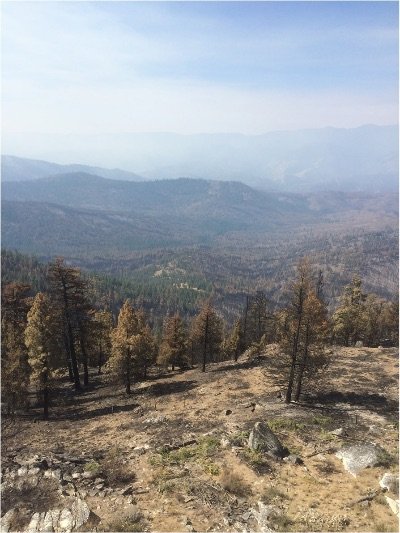Apr. 2020 Science Corner | “Changing wildfire, changing forests: the effects of climate change on fire regimes and vegetation in the Pacific Northwest, USA”


In a recent synthesis study published in the journal Fire Ecology, Jessica Halofsky of the US Forest Service’s Pacific Northwest Research Station and her colleagues at the University of Washington set out to evaluate how forest management can be adapted in a changing climate.
Authors: Jessica E. Halofsky, David L. Peterson, Brian J. Harvey
Interview and story by: Kim Seipp
Climate change is affecting fire regimes, but what does this mean for forest management? In a recent synthesis study published in the journal Fire Ecology, Jessica Halofsky of the US Forest Service’s Pacific Northwest Research Station and her colleagues at the University of Washington set out to evaluate how forest management can be adapted in a changing climate.
They focused specifically on the Pacific Northwest. “There is a very close tie between climate and fire which is consistent across the West, but it’s important to do region- and forest-specific analysis to understand the best management actions. For example, traditional fuel treatments aren’t going to be useful in very wet forests, so we need to think about the range of adaptation options and where they might be appropriate.”
Halofsky and her coauthors were motivated to develop “research and products that are useful for managers so that they can prioritize management activities and adapt their management strategies with climate change.” In addition to their peer-reviewed article, they created a fact sheet and an interactive story map and have been doing webinars and other outreach to engage stakeholders and the broader community.
One of the take home messages of their research is that collaboration is key to managing increasing fire risk. “The US Forest Service has the overwhelming task of treating their land and they can’t do it alone,” Halofsky said. “Partnerships like the FRB are critical for forest restoration, especially in the face of climate change.”